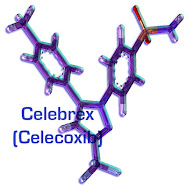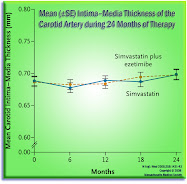 Yep -- Whitehouse Station has been "blarting" all about (twice, in two days, no less!) its boceprevir HCV 60 percent response rate, over control [looking at telaprevir, Vertex's comparator number here -- is a solid 85 percent].
Yep -- Whitehouse Station has been "blarting" all about (twice, in two days, no less!) its boceprevir HCV 60 percent response rate, over control [looking at telaprevir, Vertex's comparator number here -- is a solid 85 percent].
Meanwhile, looking out to the generation beyond 2011-2012, at EASL 2011, Vertex has quietly, simply, and quite politely, been mentioning its 90 percent SVR over a control-regimen. To be clear, that is the generation after 2011, the one that will compete with Hoffman LaRoche's dalcetrabib (click on second image, at right, below -- for that story), and Merck's anacetrabib -- sometime in 2016.
In any event, here's a bit from Benzinga.com -- do go read it all:
. . . .In a note to clients, Piper Jaffray writes, "We are attending the European Association for the Study of Liver meeting in Berlin where Late Breaker posters are up. Abstract #1363 on Vertex' Phase II quad combotrial of Telaprevir + HCV non-nuc polymerase inhibitor VX-222 showed 90% response at week 12. We saw even more impressive combination data on Pharmasset's HCV nucleotide polymerase inhibitors and Bristol-Myers' NS5A inhibitor BMS-790052 + protease inhibitor BMS-650032. VRTX shares may trade lower today, but we remain buyers into the April 28th AdComm as Telaprevir maintains a 2+ year over competition. . . .
We may be only about seven weeks away from US FDA approval for the Vertex telaprevir Hep C therapy, now.
Do stay tuned, but even if Merck's boceprevir is only three weeks behind, I think the clinical data clearly favors Vertex, and J&J. And longer term, I think it is a tossup between Hoffman LaRoche and Vertex.




































